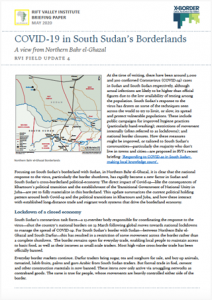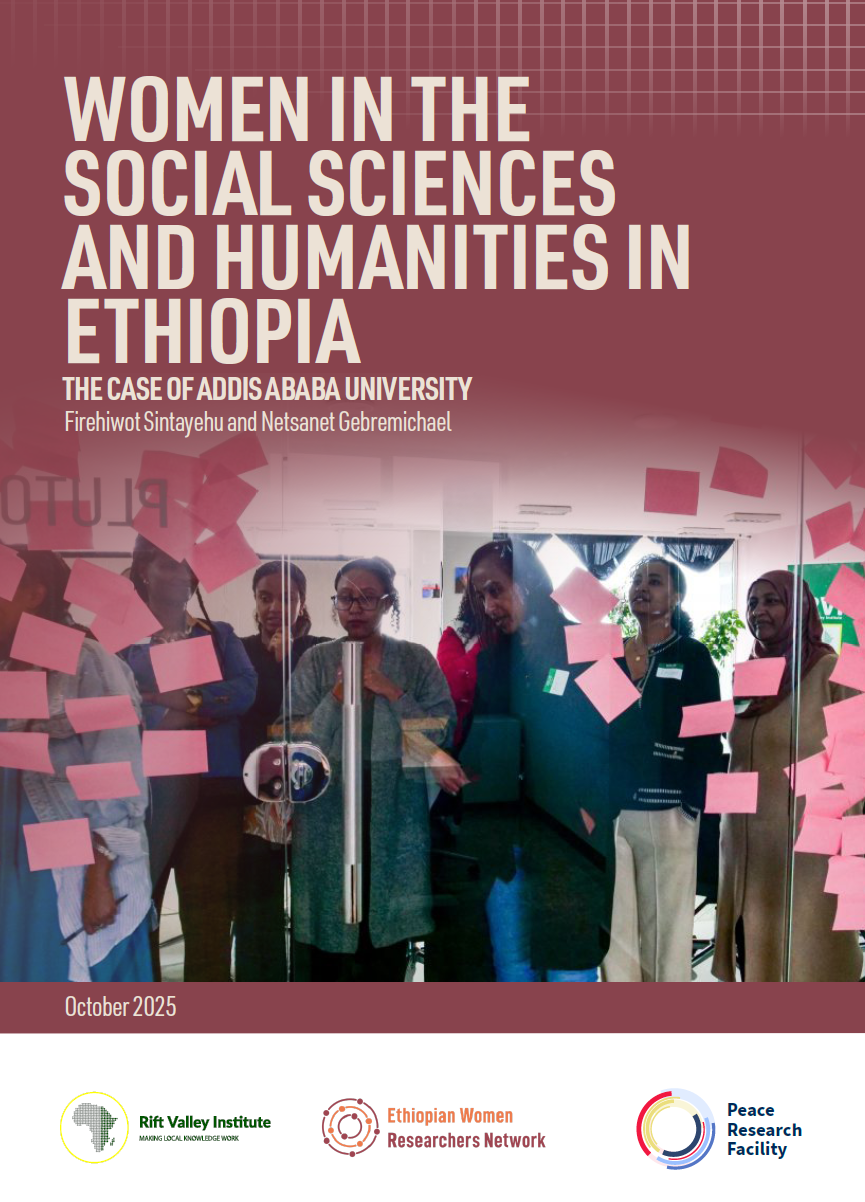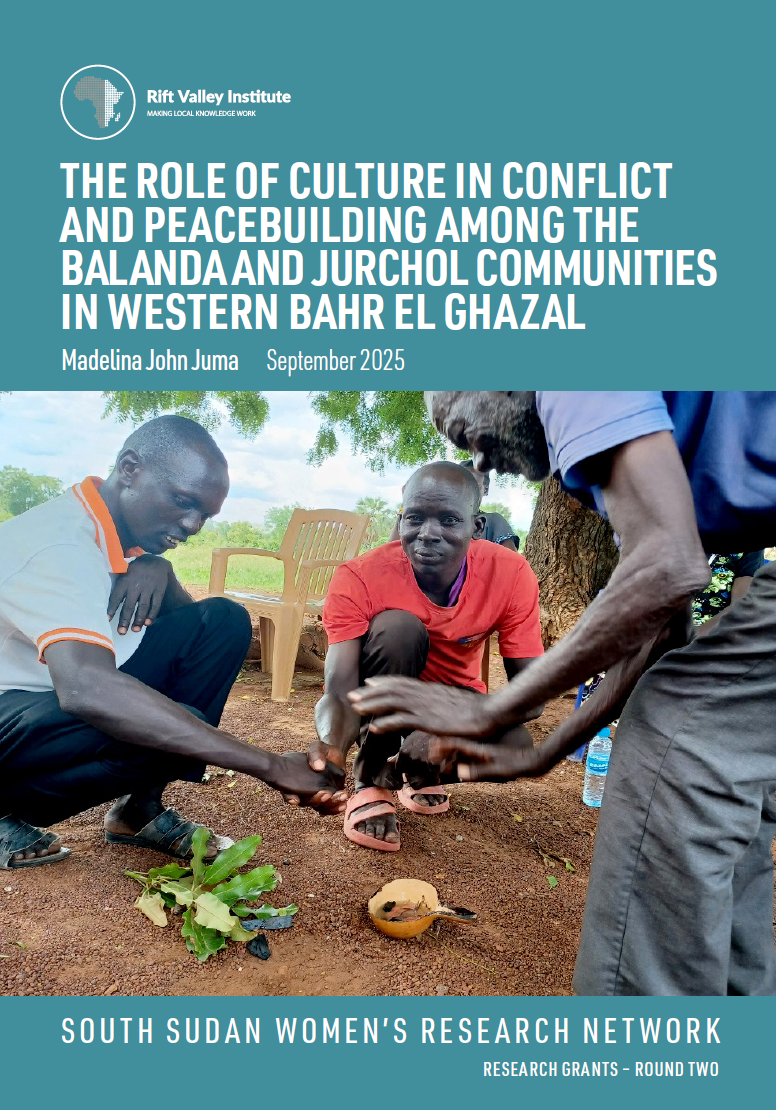Focusing on South Sudan’s borderland with Sudan, in Northern Bahr el-Ghazal, it is clear that the national response to the virus, particularly the border shutdown, has rapidly become a new factor in Sudan and South Sudan’s cross-border political economy. The direct impact of COVID-19—like the consequences of Khartoum’s political transition and the establishment of the Transitional Government of National Unity in Juba—are yet to fully materialize in this borderland. This update summarizes the current political holding pattern around both COVID-19 and the political transitions in Khartoum and Juba, and how these interact with established long-distance trade and migrant work systems that drive the borderland economy.
This briefing is a product of the X-Border Local Research Network, a component of DFID’s Cross- Border Conflict—Evidence, Policy and Trends (XCEPT) programme, funded by UKaid from the UK government. The programme carries out research work to better understand the causes and impacts of conflict in border areas and their international dimensions. It supports more effective policymaking and development programming and builds the skills of local partners.



